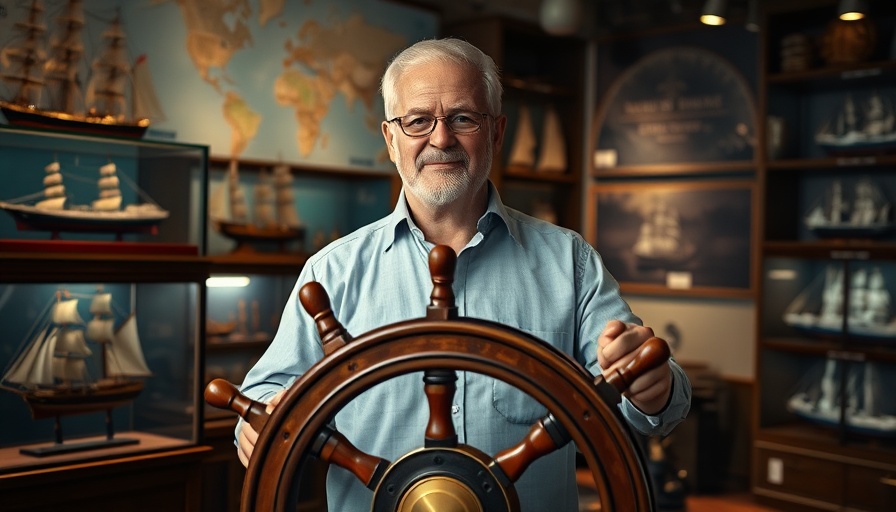
Decarbonising the Marine Logistics Sector: A Vital Transition
As global concerns over climate change intensify, the marine logistics sector is finding itself at a pivotal juncture. Merchant shipowners are under escalating pressure to reduce their carbon footprints, especially with the spotlight on Scope 3 emissions, which include all indirect emissions that occur in a company’s value chain. Tan Thai Yong, chairman of the Coastal Sustainability Alliance in Singapore and CEO of PaxOcean, emphasizes that the transition to greener practices in maritime operations isn’t just about compliance; it’s about creating tangible business benefits.
The Need for Sustainable Solutions
According to Tan, the drive towards decarbonisation is not merely regulatory. The Maritime and Port Authority of Singapore (MPA) has mandated that by 2030, all new harbour crafts must be electric or compatible with net-zero fuels. This shift is crucial as it echoes a broader trend towards sustainable development practices critical for the future of our planet.
However, Tan notes that while the motivation to go green is strong, the financial implications of operating electric vessels can be daunting. The costs can be significant, but they are necessary for the long-term sustainability of the marine logistics industry. By establishing e-supply routes, such as the innovative “milk runs,” operators can optimize deliveries and decrease operational costs, ultimately proving that sustainability can drive business efficacy.
Implementing Electric Vessels: Trials on the Water
PaxOcean is spearheading a game-changing initiative with its first fully-electric vessel set to launch in a one-year trial next month. This supply boat will facilitate multi-stop deliveries, which will help in achieving efficiency while reducing the carbon footprint. According to estimates, each trip could result in a reduction of approximately 0.5 metric tonnes of Scope 3 greenhouse gas emissions for the merchant ships serviced.
This trial represents a breakthrough in the way marine operations can adapt to eco-friendly technology. Lessons learned from this trial will not only enhance vessel design and efficiency but also yield insights into the practicalities of implementing such sustainable practices industry-wide.
Green Practices and the Circular Economy
As countries around the world grapple with climate change, integrating sustainable practices into logistics is becoming foundational. Elements of the circular economy, such as waste reduction and resource effectiveness, are crucial. By implementing green technology and pursuing sustainable solutions, the marine logistics sector can align itself better with global climate action goals.
Practices like reducing waste through recycling and sustainable sourcing further enhance the ecological efficiency of logistics companies. By committing to sustainable practices, organizations can contribute positively to environmental conservation, paving the way for more socially responsible operations.
The Future of Marine Logistics: Predictions and Insights
Looking ahead, Tan urges industry leaders to recognize that the transition to a zero-emission future must start now to align with ongoing global trends towards sustainability. With the decarbonization of marine logistics being inevitable, companies that adapt early will not only benefit from regulatory compliance but will also capture market-share advantages.
Predictions indicate that as electric vessels become more commonplace, other industries will follow suit, bolstering the green economy. As consumer demand for eco-friendly products rises, companies that embrace sustainable practices stand to gain significantly.
Your Role in a Sustainable Future
As readers, you have the power to influence environmental sustainability. By choosing to support companies that prioritize eco-friendly practices, and by adopting an eco-conscious lifestyle, you contribute to a larger movement towards environmental stewardship and responsible consumption.
We all have a role in fostering sustainable communities and supporting green initiatives. Your choices in purchasing eco-friendly products and advocating for sustainable practices can drive change and help mitigate climate change impacts in marine logistics and beyond.
Call to Action: Join the movement towards a sustainable future by supporting eco-friendly businesses and practices. Every small choice matters!
 Add Row
Add Row  Add
Add 



Write A Comment